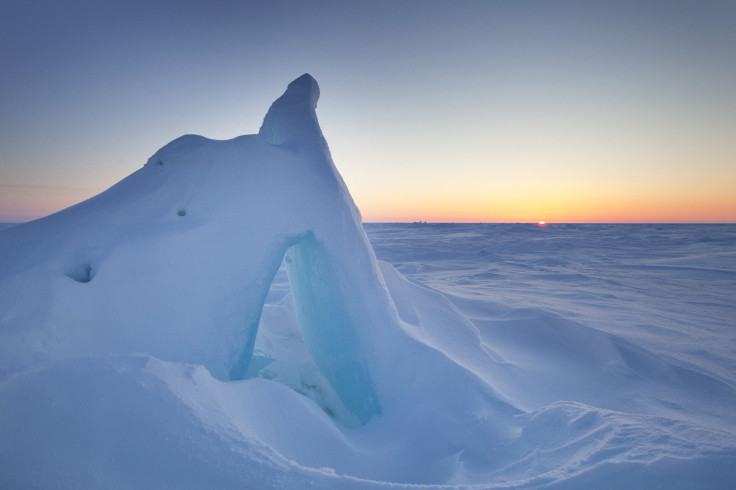Global Warming Leads To Darker Arctic, Making Earth Absorb More Solar Energy: Study

The melting of sea ice in the Arctic Ocean is reducing the Earth’s ability to reflect sunlight to a larger extent than was previously estimated, as it has led to a darkening of Arctic Ocean surfaces and further warming of the planet, according to a new study by researchers at the Scripps Institution of Oceanography in California.
The study, published Monday in the Proceedings of the National Academy of Sciences, said that due to melting of sea ice, its white reflective surface turns to a relatively dark ocean surface. This darker surface reduces the amount of sunlight being reflected back into space, causing the Earth to absorb an increasing amount of solar energy.
“It’s fairly intuitive to expect that replacing white, reflective sea ice with a dark ocean surface would increase the amount of solar heating,” Kristina Pistone, a graduate at Scripps who participated in the research, said in a statement.
According to the study, the Arctic has warmed by 2 degrees Celsius (3.6 degrees Fahrenheit) since the 1970s while the summer minimum Arctic sea ice extent has decreased by 40 percent during the same period. All these factors have decreased the region’s reflectivity, or albedo, the researchers said.
Pistone, along with two other climate scientists, Ian Eisenman and Veerabhadran Ramanathan, used satellite measurements to calculate changes in the albedo of the Arctic region associated with the changing sea ice cover.
“We used actual satellite measurements of both albedo and sea ice in the region to verify this and to quantify how much extra heat the region has absorbed due to the ice loss. It was quite encouraging to see how well the two datasets – which come from two independent satellite instruments – agreed with each other,” Pistone said.
The albedo of fresh snow is typically between 80 percent and 90 percent whereas the albedo of the ocean surface is less than 20 percent. Clouds and other factors also influence the Earth's albedo.
According to the researchers, the albedo of the Arctic region fell to 48 percent from 52 percent between 1979 and 2011. The study, which used NASA’s CERES instruments and other satellites, also revealed that the extent of surface darkening has been two times to three times as large as that found in previous studies.
“Averaged over the entire globe, it’s one-fourth as large as the direct radiative forcing from CO2 during the same period. This suggests that Arctic sea ice retreat has been an important player in the global warming that we’ve observed during recent decades,” Eisenman said.
© Copyright IBTimes 2024. All rights reserved.






















